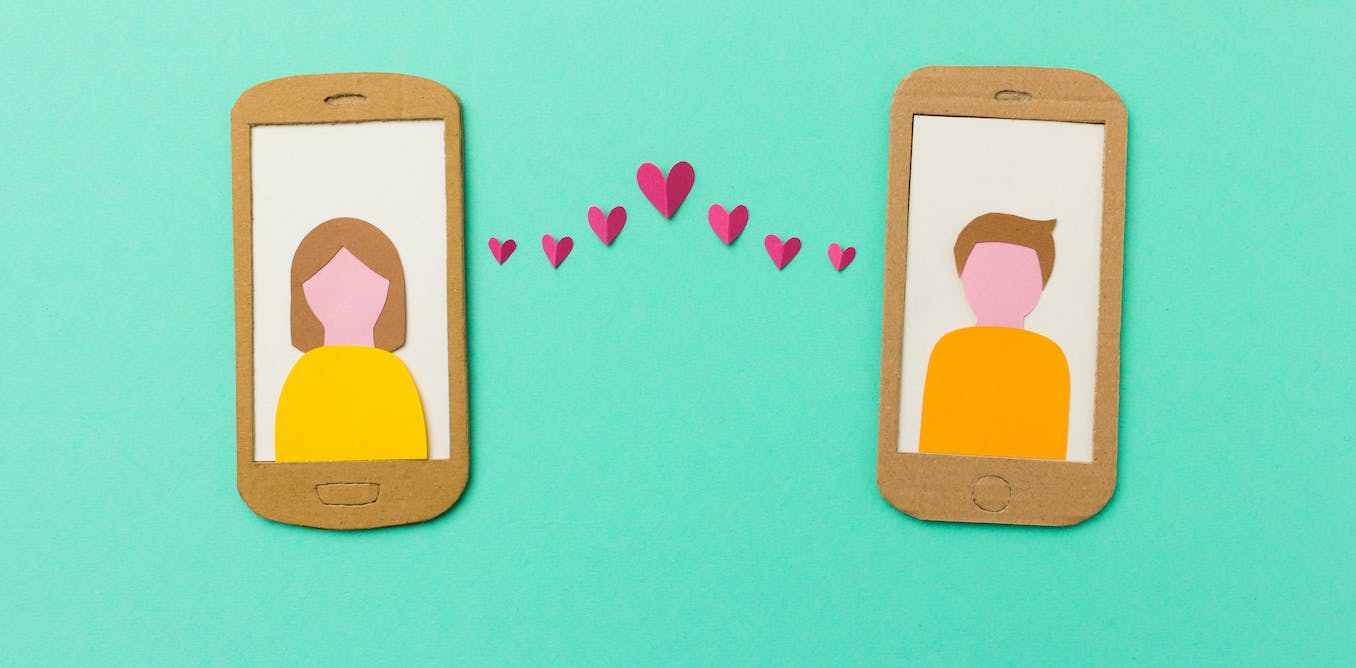Everyone wants love, but most still turn their nose up when it’s sold to them
Matchmaking and dating services used to advertise in small rectangles on tube carriages, next to the vitamin drinks and food delivery services, and in smaller rectangles still on the classified pages of newspapers and magazines. But the online dating industry has matured into bigger and bolder campaigns: the world’s largest online dating site, Match.com recently launched an ad campaign that featured dozens of giant posters in prime advertising locations, slots normally taken by the likes of Sky, Eurostar, or the high street banks.
But the campaign, with its slogan “love your imperfections”, was not universally welcomed. Some example traits – poor bakery skills and “dad jokes” – were suitably inoffensive, but when it featured a female face with red hair and freckles the site triggered a cascade of complaints and was forced to apologise. (As a red head with freckles, for the record, I felt neither represented or offended – just bewildered).
The fact that Match.com was attacked for what was really a fairly innocent campaign reveals something odd about internet dating: while such sites have developed into a social norm in recent years, deep-seated status issues continue to cling to the industry.
There is a pecking order of the public perception of brands, and online dating appears somewhere near hair-growth creams and sanitary towels. This is probably why many prefer to read about dating sites when they make waves for all the wrong reasons – like leaking millions of user’s data or setting up dating sites for Donald Trump fans – not when they tout for business.
We understand tacitly that Eurostar, Gap, Santander and other brands are flogging products because that’s what companies do. But when the product being flogged is a saccharine, corporate version of something as personal and hard to come by as romantic synergy and sexual chemistry, the reaction is often one of revulsion.
Lessons from history
But online dating firms are only trying to become what a global internet economy and a choice-led romantic landscape wants it to be: everyday, respectable, loved. Perhaps it shouldn’t bother. As historian Harry Cocks makes clear, the dating industry has been trying to fit in since the 1860s, and generally failing.
Observing the spread of the matrimonial press (the equivalent of lonely hearts columns), the Saturday Review of London remarked in 1862 that this way of meeting people was unseemly and lower class. Vile “locks of hair, usually very red indeed, and saturated with rancid fat” were often posted between prospective lovers. Regardless of the popularity of love and sex, the idea of a “marriage market” caused commentators to wrinkle their noses in distaste, even into the 20th century.
By the 1920s, police scandals involving men meeting men through the contact newspaper The Link threatened to shut the industry down entirely and confirmed its aura of disrepute. It survived, giving rise to the mid-century, starchy marriage bureaux that gave it a sheen of respectability. There were less earnest propositions: the first computer dating company in the UK, Dateline, was founded in 1966, along with a raft of small-scale, have-a-go agencies.
Crime, fraud and scandal abounded in news reports – women murdered through lonely hearts adverts were a fixture of the cultural imagination. But the high-profile case of Ann Mead, a doctor battered to death in 1994 by a man she met through advertising in the New Statesman, shows that this was unfortunately also a reality.
The underbelly of dating
The fact is that dating services have always been more closely linked in the public imagination to the sleazy and sexually dangerous than the industry would like. According to Sandy Nye, the widow and business partner of Dateline’s founder, John Patterson, the company tried for years to get its ads into respectable papers but the broadsheets didn’t want to know. It was only when the company rebranded as a family business that its print ads were accepted. Aiming for television, the Cable Authority kept Dateline’s adverts at bay for a decade, finally allowing a Sky commercial only in 1987. The Guardian explained the authority’s hesitation at the time that with a reference to escort services and “fronts for sex work”. The authority’s controller, Chris Quinlan, prudishly insisted that Dateline’s commercial “must not exploit loneliness, nor be suggestive, such as using large-chested ladies”.
In the past five to ten years the internet has made dating services more respectable than ever, at least in Britain. But online dating’s destiny is inevitably not the sleek, the cool or the cute. However useful, Match.com and its ilk need to accept their place – sub-radar and generally not something to crow about.
In some sense it’s uplifting to reflect that – even in these market-saturated times – love is not something we want to see sold to us so brazenly from billboards. Bizarre though, isn’t it, that romance is used to sell Christmas turkeys, holidays, and practically everything else. But when love is used to sell love, many of us feel something is wrong.

